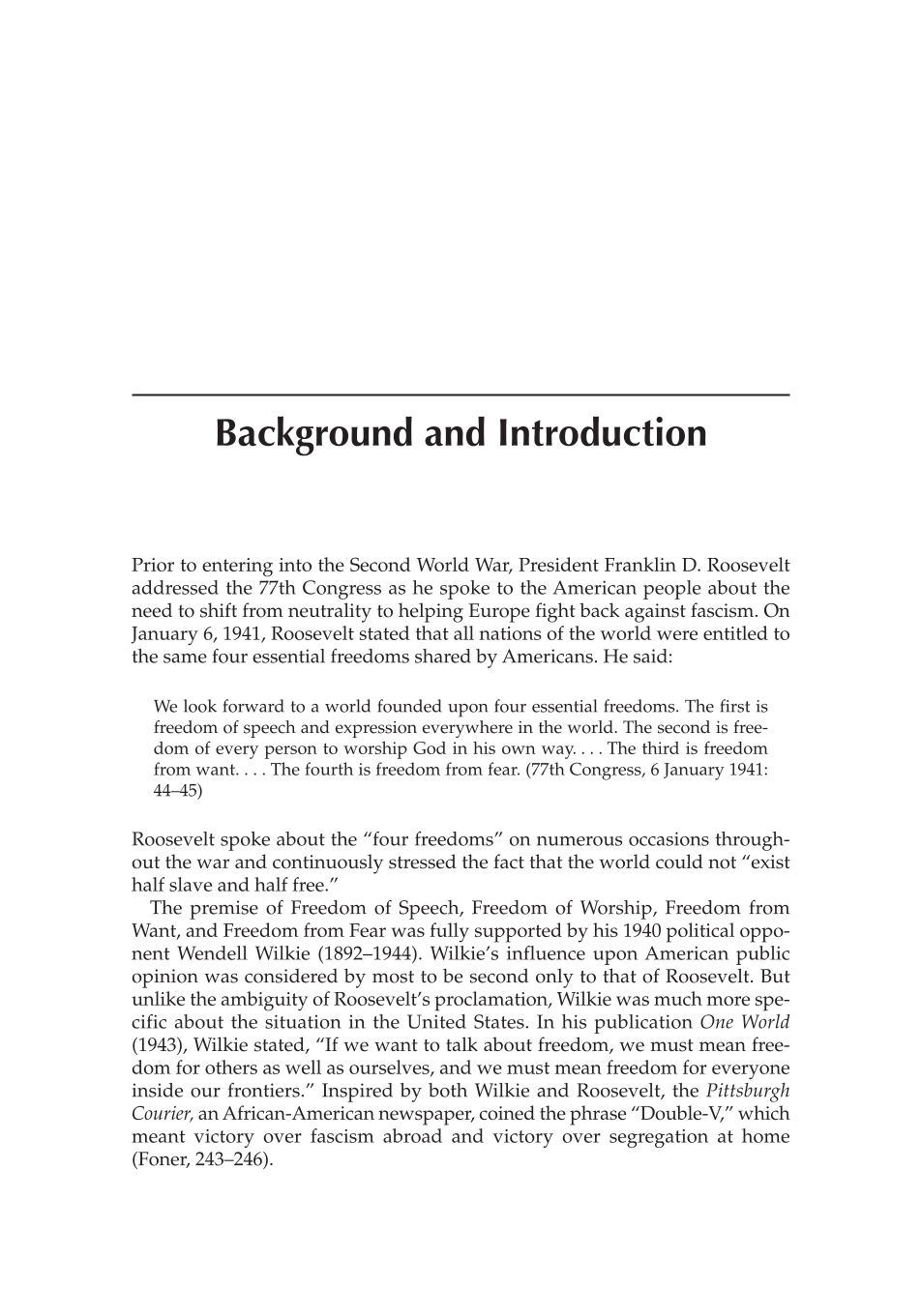Prior to entering into the Second World War, President Franklin D. Roosevelt
addressed the 77th Congress as he spoke to the American people about the
need to shift from neutrality to helping Europe fight back against fascism. On
January 6, 1941, Roosevelt stated that all nations of the world were entitled to
the same four essential freedoms shared by Americans. He said:
We look forward to a world founded upon four essential freedoms. The first is
freedom of speech and expression everywhere in the world. The second is free-
dom of every person to worship God in his own way. . . . The third is freedom
from want. . . . The fourth is freedom from fear. (77th Congress, 6 January 1941:
44–45)
Roosevelt spoke about the “four freedoms” on numerous occasions through-
out the war and continuously stressed the fact that the world could not “exist
half slave and half free.”
The premise of Freedom of Speech, Freedom of Worship, Freedom from
Want, and Freedom from Fear was fully supported by his 1940 political oppo-
nent Wendell Wilkie (1892–1944). Wilkie’s influence upon American public
opinion was considered by most to be second only to that of Roosevelt. But
unlike the ambiguity of Roo se velt’s proclamation, Wilkie was much more spe-
cific about the situation in the United States. In his publication One World
(1943), Wilkie stated, “If we want to talk about freedom, we must mean free-
dom for others as well as ourselves, and we must mean freedom for everyone
inside our frontiers.” Inspired by both Wilkie and Roo se velt, the Pittsburgh
Courier, an African-American newspaper, coined the phrase “Double-V,” which
meant victory over fascism abroad and victory over segregation at home
(Foner, 243–246).
Background and Introduction









































































































































































































































































































































































































